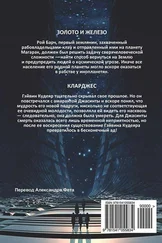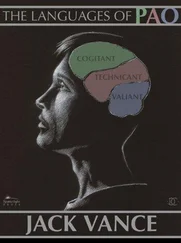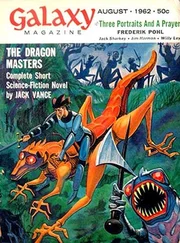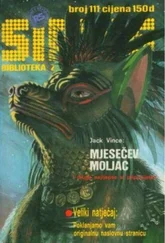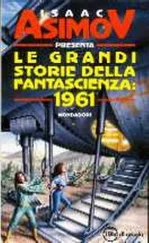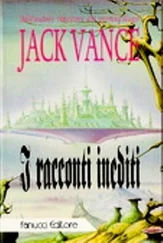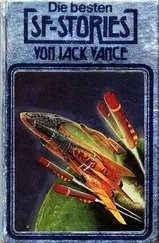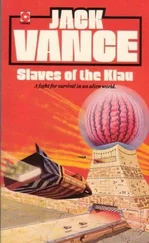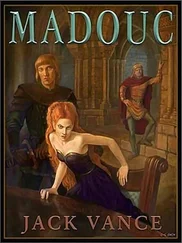Glystra rose to his feet. “Looks like we’re planning to sleep,” he said to Corbus. “I’ll take first look-out. You can have the second, then Bishop, then Nancy”
Corbus nodded, stretched out full length.
Glystra paced up and down, clenching and unclenching his hands. It was as if his brain were a house and knocking on the door was a boy with a barrowful of thoughts. Somehow he could not find the key to the door.
He walked softly across the moss, looked down at his companions. Bishop snored, Corbus slept like an innocent child, Nancy’s hands trembled, quivered as if in a nightmare. He thought: the traders had killed Pianza, the man on watch, why had they stopped? It would have been perfectly safe to kill the entire party, and the traders apparently lacked qualms of any sort. The Earthmen wore valuable clothes, with many metal accessories. The ion-shines alone represented fortune beyond dreams. Why had not the entire party been slaughtered in their sleep? Was it that the traders had been prevented by someone who carried enough authority, perhaps in the shape of an ion-shine, to enforce his decisions?
Glystra kneaded his knuckles in his palms… Why? Had his enemy calculated that without trolleys, they might turn back to Kirstendale? If Pianza had been killed while someone stood acquiescently by, one of these three sleeping before him was not only a spy and a saboteur, but a murderer.
Glystra turned away, the ache of grief and uncertainty in his throat. He walked back into the grove. The moss was like a deep rug of marvellous softness. The air was murmurous, restful. Big Planet sunlight trickled through layers of leaves and open spaces, fell around him with the richness of light in a fairy-tale forest. Through the air came a sweet trilling, soft-flute-like. The song of a bird— no, probably an insect or a lizard; there were no birds on Big Planet. And from the direction of the dome he heard the mellow chime of a gong.
There was a soft sound beside him. He jerked around. It was Nancy. He sighed in relief. “You frightened me.”
“Claude,” she whispered, “let’s go back—all of us.” She went on breathlessly, “I have no right to talk this way, I’m an uninvited guest… But—you’ll surely die, I don’t want you to die… Why can’t we live, you and I? If we returned to Kirstendale—we could live out our lives in quiet…”
He shook his head. “Don’t tempt me, Nancy. I can’t go back. But I think that you should.”
She drew away, searched his face with wide blue eyes. “You don’t want me any more?”
He laughed wearily. “Of course I do. I need you desperately. But—it’s a miracle that we’ve come this far. Our luck can’t hold out forever.”
“Of course not!” she cried. “That’s why I want you to turn back!” She put her hands on his chest. “Claude, won’t you give up?”
“No.”
Tears trickled down her cheeks. He stood awkwardly, trying to formulate words of comfort. They stuck in his throat. Finally, for want of anything better, he said, “You’d better rest,” aware that the words sounded stiff and formal.
“I’ll never rest again.”
He looked at her questioningly. But she went to the verge of the oasis, leaned against a tree and stood looking across the white desert.
Glystra turned away, paced up and down the cool blue moss.
An hour passed.
He walked down to look at Nancy. She lay outstretched, head on her arms, asleep. Something in her posture, in the stiff turning-away of the back, intimated to Glystra that never again would their relationship be quite the same.
He went to where Corbus lay asleep, touched his shoulder. Corbus’ eyes flicked open instantly.
“Your watch. Call Bishop in an hour.”
Corbus yawned, rose to his feet. “Right.”
A sound. Hoarse throbbing sound. Glystra was very tired, very comfortable.
A harsh yammering penetrated the world behind his eyelids. It was a distant urgent sound. Danger, he must awake. He must awake!
He jumped to his feet, wide awake, clawing at his ion-shine.
Corbus lay beside him, asleep.
Bishop was nowhere in sight. Neither was Nancy.
A crackle of harsh voices. A thud. Another thud. Further voices, dying, fading out.
Glystra ran through the foliage, through vines with heart-shaped leaves, through a clump of red feather-bushes with green flowers. He tripped on a body, stopped short, frozen in terror.
The body was headless. Blood still pumped from the stump. The head was nowhere visible. The body belonged to Bishop’s head.
Where was that round head with its brain so full of knowledge? Where was Bishop, where had he gone?
He felt a grasp of his arm. “Claude!” He felt a string on his cheek. He looked into Corbus’ face.
“They’ve killed Bishop.”
“So I see. Where’s Nancy?”
“Where’s Nancy? Where’s Nancy? ”
He turned to look, then halted his gaze, turned to look at the ground at his feet.
“Whoever killed Bishop took her with him,” said Corbus. “Looks like her tracks, here in the moss—”
Glystra took a deep breath, another. He looked down at the tracks. Sudden energy fired him. He ran off toward the dome. He passed a circle of slim cypresses, branches laden with golden fruit. He came out on a paved walk, leading straight to the great central dome. The whole face of the building was visible as well as the columned arcades to either side. Neither Nancy nor her captors were in sight.
For an instant Glystra stood stock still, then started forward once again. He ran through the gardens, past a long marble bench, a fountain spraying up six jets of clear water, down a walkway paved with diamond-shaped blocks of white and blue-gray stone.
An old man in a gray wool smock looked up from where he knelt with a trowel in flower-bed.
Glystra stopped, demanded harshly, “Where did they go? The men with the girl?”
The old man gazed blankly at him.
Glystra took a short step forward; the old man cringed.
“Where did they go? Answer me, or—”
Corbus came up behind. “He’s deaf.”
Glystra glared, swung away. A door opened into a wall at the end of the walkway; this was the door Nancy must have been taken through. He ran over, tried it. It was as solid as a section of the stone wall.
He pounded on it, yelling, “Open up! Open! Open!”
Corbus said, “Pounding on that door won’t get you much but a knife in your neck.”
Glystra stood back, stared at the stone building. The sunlight had lost its tingle, the gardens were drab and dismal. In a bitter voice he said, “There’s nowhere on this planet where a man can walk in peace.”
Corbus shrugged. “I guess anything goes anywhere— so long as they can get away with it.”
Glystra clenched his teeth; the muscles corded around his mouth. “There’s power in this gun to kill a lot of them, and by heaven, I’ll see the color of their blood!”
Corbus’ voice was tinged with impatience. “We’ll do better if we go at the matter rationally. First we’d better take care of our beasts before they’re stolen.”
Glystra glared defiantly up at the stone wall, then turned away. “Very well… You’re right.”
For a moment they stood by the headless body. “Poor old Bishop,” said Glystra.
“We probably won’t outlive him more than a day,” said Corbus in his flat voice.
The zipangotes stood grunting and growling, bumping the white carapace of their heads against the tree-trunks. Wordlessly Glystra and Corbus loaded the packs, handling the pathetic belongings of Bishop and Nancy with heavy fingers.
Corbus stopped in his work. “If I was running this outfit, do you know what we’d do?”
“What?”
Читать дальше

